Post-Operatic Garden of Idealistic Delights
Acclaimed Mezzo-Soprano Joyce DiDonato Returns to Santa Barbara with her Ambitious, Multimedia, Multi-Period Concept Work EDEN
By Josef Woodard | January 19, 2023

In the life and career trajectory of an operatic singer — even those with a reputation for adventurous repertoire — parameters of the profession are, by definition, fairly narrow. There will be operas. There will be recitals. There may be crossover projects and other specialty items in the margins. End of story, more or less.
Such an entrenched profile has largely governed the stellar career of American mezzo-soprano Joyce DiDonato, in the midst of a life in the upper echelon of operatic/recital worlds. But something new and uniquely ambitious has come into being within the past year, in the form of her conceptual project known as EDEN, being brought to The Granada Theatre on Tuesday, January 24, by the co-commissioning body, UCSB Arts and Lectures.
It was in the Granada, in fact, that DiDonato made her Santa Barbara debut back in 2018, with a stirringly fine recital. The program demonstrated her innate versatility, ranging from Handel to Rossini and Ravel, with a touching “Over the Rainbow” in honor of her Kansas roots. That versatility both expands and gains a fresh conceptual cohesion with EDEN, whose musical tapestry courses across centuries, from Gluck and Handel to Mahler, Charles Ives, and a newly commissioned, musical-theater-like song by film composer Rachel Portman. Stirred into the concept are elements of theater, movement, lighting, and the early music ensemble Il Pomo d’Oro.
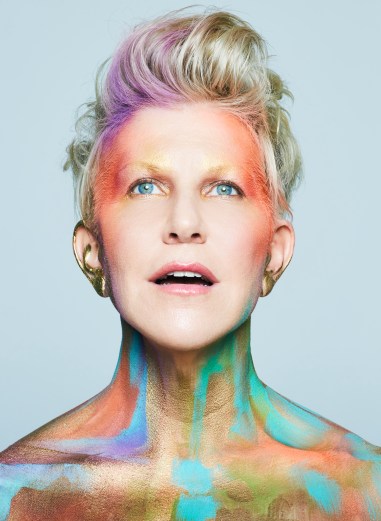
EDEN, the album, was released last February and began its touring life last March, with breaks for DiDonato’s strong, ongoing opera performance schedule. The latest operatic sensation in her storied career was her role in the Metropolitan Opera’s production of Kevin Puts’s adaptation of Michael Cunningham’s novel The Hours, with DiDonato portraying a seminal modernist with a vision of her own — Virginia Woolf — alongside formidable co-stars Renée Fleming and Kelli O’Hara.
Eminent critic Alex Ross, in his New Yorker review in December, questioned the musical content of the piece but was thrilled by DiDonato’s work: “The Hours is still worth seeing for its formidable cast — above all, for Joyce DiDonato. The increasingly incomparable mezzo-soprano delivers an astonishing physical impersonation of Woolf, her body language hunched, flinching, but determined: Several times, I had to remind myself who was onstage. DiDonato was last seen at the Met in the flittering, devious title role of Handel’s Agrippina. In The Hours, she adopts a drastically different vocal persona, unleashing foghorn tones in her lower range and searchlight timbres on top.”
Demonstrating still further versatility, DiDonato’s grand project EDEN veers away from tradition in various ways, including the act of giving seed packets to each audience member. The gesture imparts literal and symbolic references to growth and renewal, in a work deeply imbued with ecological and humanistic themes.
In another significant aspect of the presentation, DiDonato has been enlisting children’s choral groups in each city she visits. The Santa Barbara stop features members of the Music Academy of the West–sponsored Sing! program. Sing! singers have already graced major stages in town, with the Santa Barbara Symphony and the Santa Barbara Choral Society, but EDEN represents their highest-profile gig yet.
Over her holiday break, between the close of The Hours and the relaunch of her EDEN touring, DiDonato kindly consented to an interview. It has been edited for length and clarity.
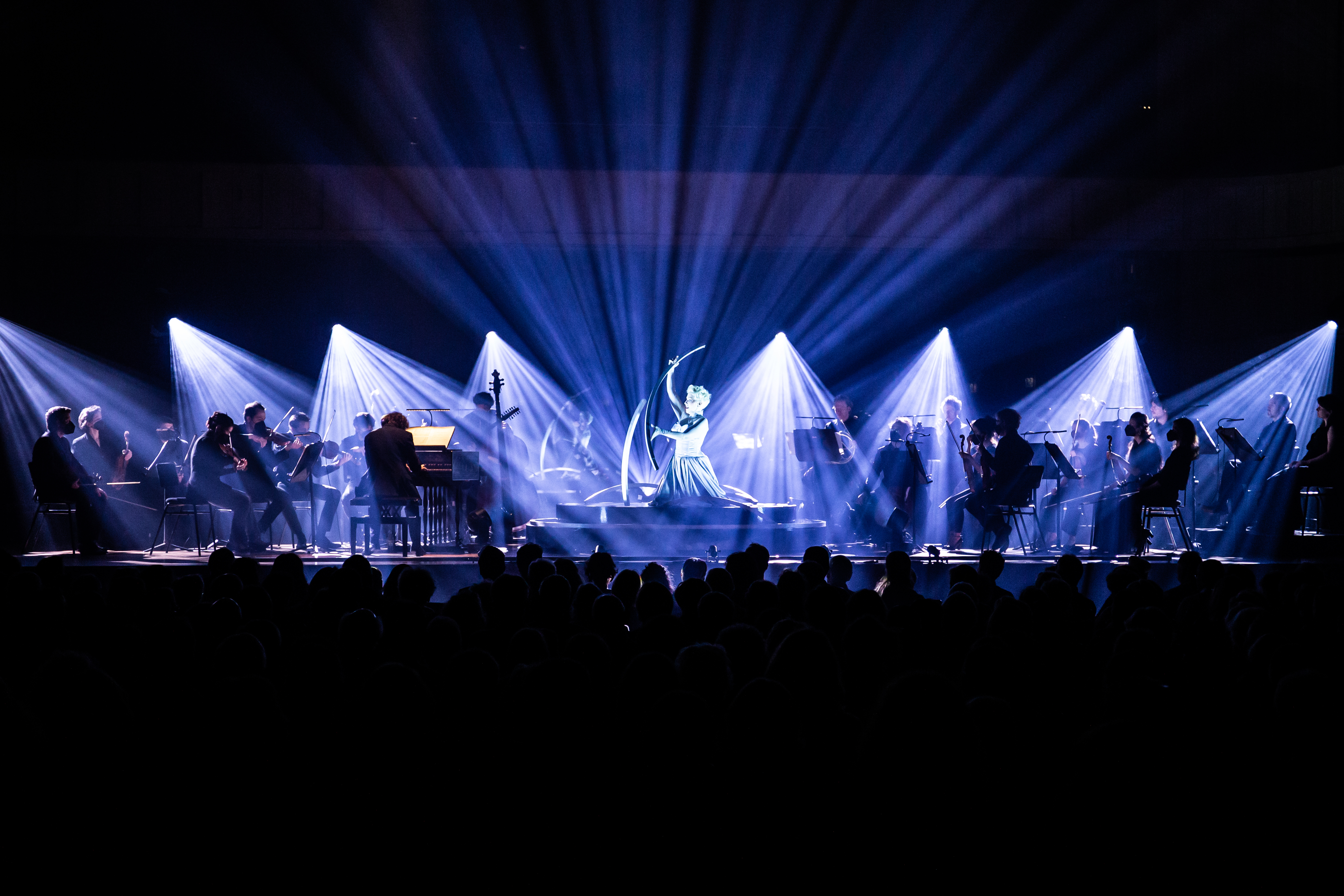
You are headed back to Santa Barbara, and to The Granada Theatre, after a memorable recital there back in 2018 — your Santa Barbara debut. Of course, this time out, it’s a much grander project that takes you here and out on the road. Is this an exciting moment, on the verge of taking your brainchild back out on the road come the new year? Joyce DiDonato: I can’t tell you how much I’m looking forward to seeing how EDEN has evolved since we launched her about 10 months ago. It’s a huge undertaking, and one that you never know will truly work until you put it in front of an audience — so you can imagine the elation when we felt the tremendous reception.
This is a project, I’m finding, that simply picks up steam and energy as it goes from city to city, so I know it will be something even richer, with more impact than ever before.
As for present projects commanding your attention … congratulations on the success of The Hours at the Met, which also captured a vast live-streaming audience. Has the interest in an opera based on Virginia Woolf taken you by surprise? I don’t know if I had a specific expectation. As with any new work, you’re nervous and hopeful, but the verdict remains out until the audience arrives. However, with this piece, from the first rehearsal, it was clear to me that there would be a big emotional impact. I was so overwhelmed to feel such a heartfelt reaction, but more than that, a sense of true solace and comfort that came from this story being sung.
People felt seen and understood, particularly coming out of the challenges of this pandemic. It was an incredibly auspicious, well-timed arrival.
Over your career, you have managed to move with ease across eras, from Baroque to contemporary opera, including Dead Man Walking and Little Women. Has that always been an aesthetic disposition for you, wanting to work in various musical eras, styles, and milieus? I admit I have a huge musical appetite, and one that pulses with a lot of curiosity, so new music, undiscovered music, and genres that challenge and reward me I think are all reasons I’ve gone through 23-plus years of an international career, and I’m still ready for more.
EDEN comes with a strong reputation preceding it, including a Grammy nomination for the album. This is a unique and ambitious undertaking, moving across what we consider to be boundaries separating mediums — operatic arias, new songs, and aspects of theater, staging, lighting, and movement. Can you trace the seeds, so to speak, of how the project came into being, and did it grow beyond your original intentions as you got deeper into the concept? I feel that EDEN is really the culmination of my entire career — four centuries of music, opera and song, theater, and a strong character/narrative. Perhaps I’ve been working toward this my whole life?
I have always had a strong compulsion to tie what happens on the stage to everyday life, and sometimes in opera we can miss that connection. In developing this project, I began wanting very much to speak about the climate, but EDEN has taken me on a course that seems to embrace the idea of connection more: connection to each other, and to the world around us, but a true connection to ourselves.
As I continue learning from this journey, I realize that without a direct connection to the world around us, we will never, ever take care of it. I want EDEN to remind people, or to awaken within them the memory or the realization that we are all connected in the vastness and wonder of nature. That’s all. [Laughs.]
Can you point to past precedents and influences on the project? I feel we flew completely solo on this one. I did pull on the project, In War and Peace, which we did a few years ago, but this project feels quite unique. I think the key was to simply give ourselves permission to let it be whatever it felt it needed to be. With that freedom, we can link music together that perhaps has been off-limits, but I’m finding it helps me hear it all in a completely new and wonderful light.
Woven into the piece is a strong environmental concern and climate crisis awareness. Is this message vital to its mission statement? I would say it is the ambition of EDEN, absolutely. Music lovers garner so much peace and solace from a great concert, but many times that experience stays in the theater, and in their memory. But I find this music so compelling and inspiring, that I think it’s possible the audience can actually begin to imagine that change is truly tangible. And with a strong invitation, and the support of their fellow concertgoers, perhaps they will have the tools to engage and connect a bit more radically when they return home.
You open with Ives’s iconic and moving “The Unanswered Question” — with your voice carrying that haunting four-note motif — and move through different eras and resolve with the sweetly uplifting contemporary tune “Seeds of Hope.” The final line suggests a theme about the entire piece: “Hear our voice, the message we bring / and listen to the song we sing.” Did you envision the whole flow and message of EDEN almost in narrative terms, working its way to that particular climax? I absolutely did. It begins with a question, and the journey starts in Rachel Portman’s transportive “The First Morning of the World,” and the audience is carried along in this search for understanding. I think many people today — certainly since the start of the 21st century — are questioning things more aggressively and urgently than ever before. EDEN reflects that but offers a pathway toward hope. As we know, without hope, none of us will act. So perhaps the most valuable seed we offer the audience is one of hope. If I do that, then I’m elated.
You incorporate youth chorus elements into the performances, including, in Santa Barbara, the Sing! program. Was it important for you to connect with young musicians here — especially on a project about hope for the future? It was everything. I am not quite sure how the idea arrived, so in a way I think it was always destined to be. On a quite literal level, I feel we are passing on the seeds of music and sharing your voice with the world, and I can’t think of a more empowering gift to leave behind. I’m keenly aware of the resources involved in a tour, and looking toward sustainability and impact, I wanted to leave behind something living. And I can tell you, after working with nearly 800 children across 20 cities so far, the impact is real.
It has been a highlight of my career interacting with these amazing children. My hope is that more performing arts organizations and touring artists will include local musicians and kids in their projects.
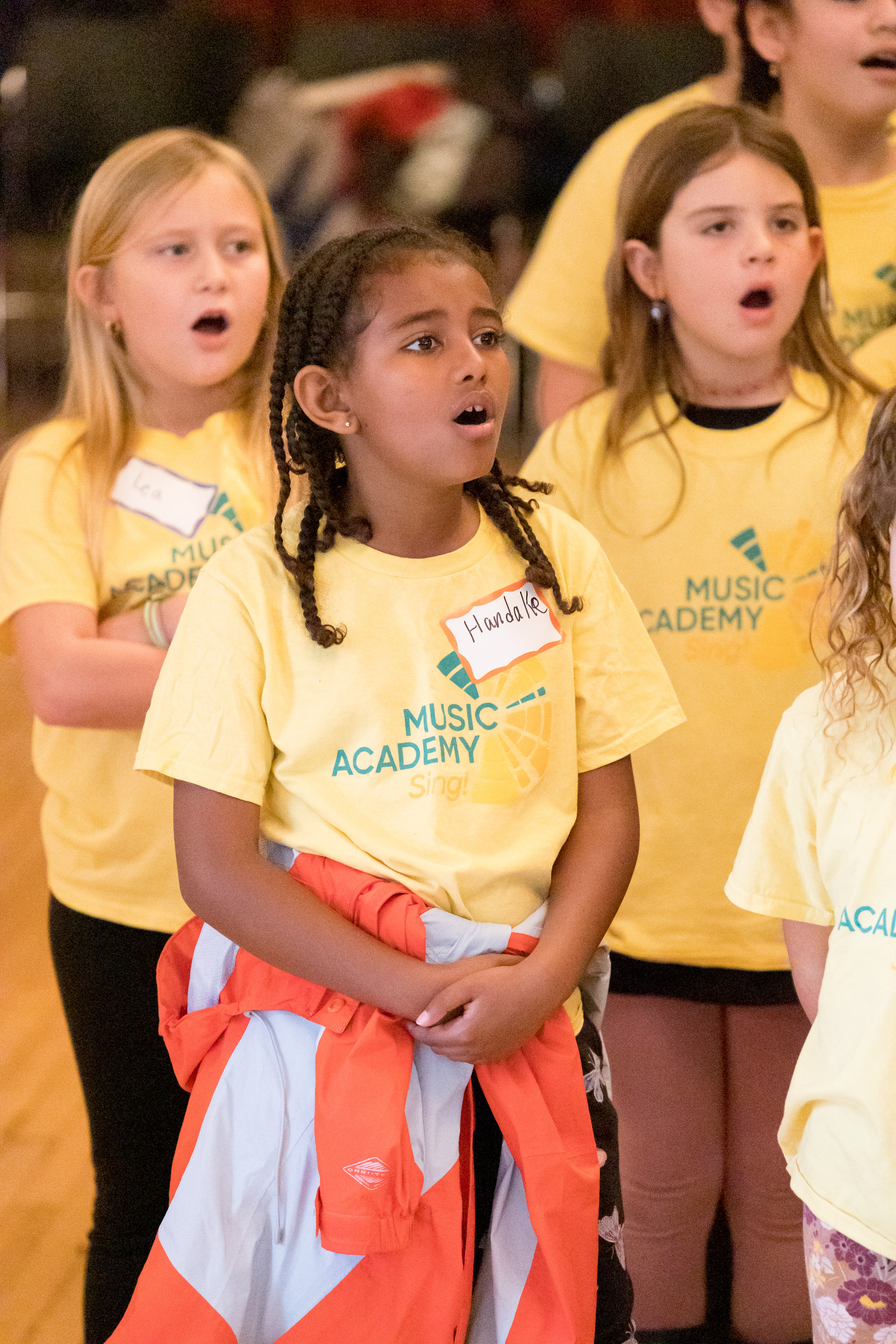
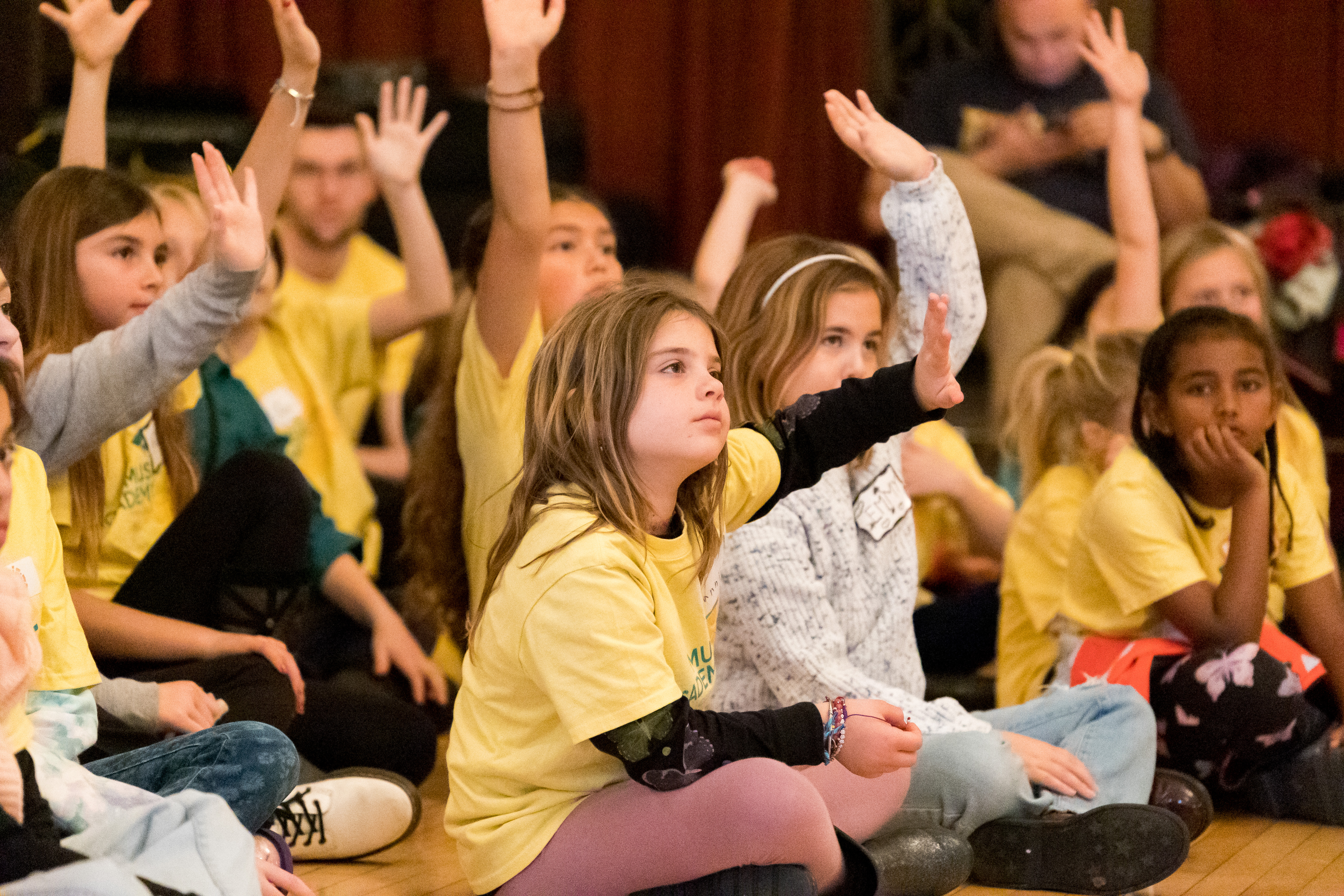
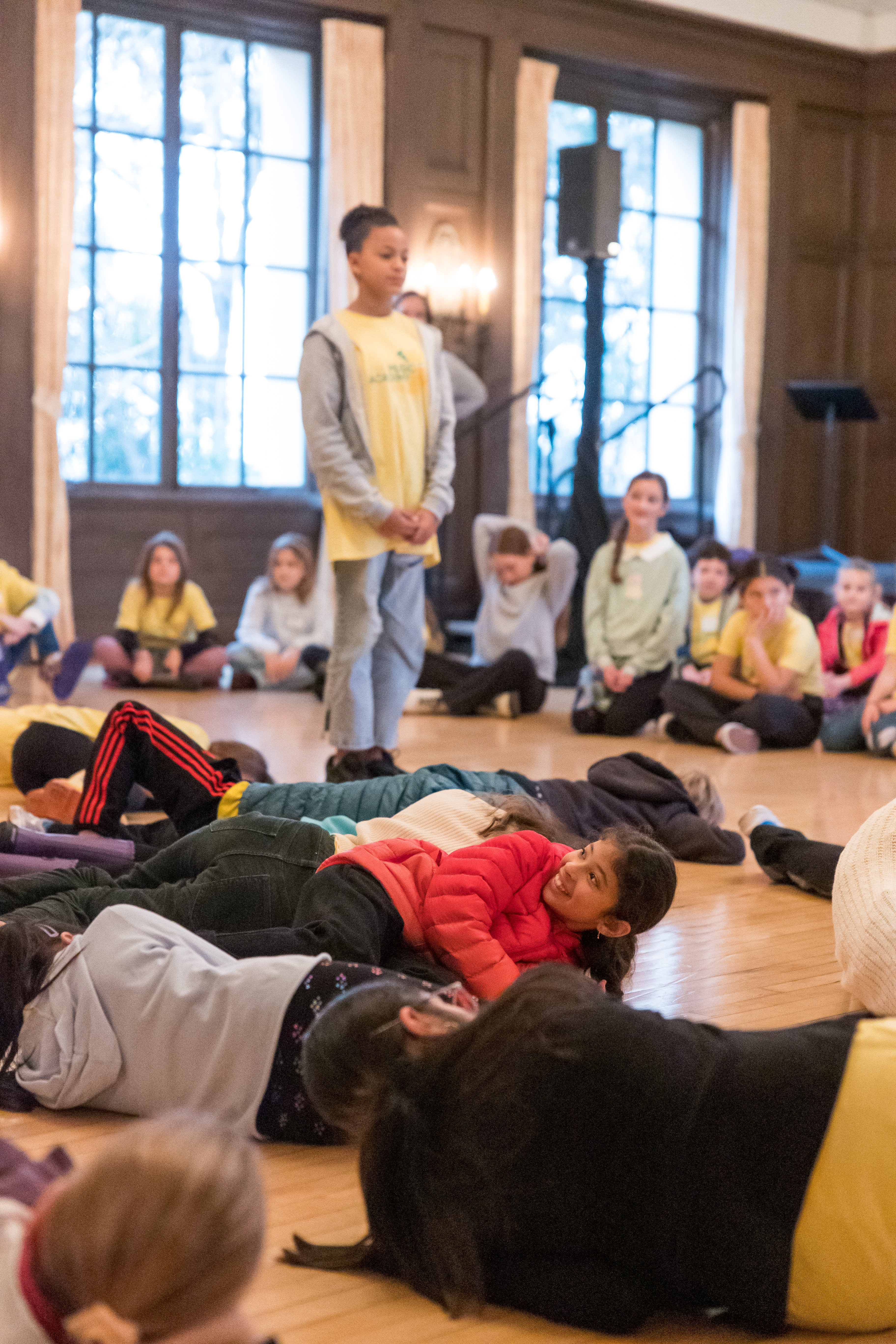
You also commissioned a song from the famed film composer Rachel Portman, “The First Morning of the World,” a more contemporary song with roots in musical theater, and appreciable to listeners who might not be entrenched in the forms of opera. Was it important for you to include something new and project-specific in the mix? Thinking of EDEN, the idea of creation is palpable, and so we knew right from the start we needed to create a new piece of music. What Rachel and Gene Scheer, who wrote the text, created is really beyond what I had hoped for. It’s a quite intimate, probing cry for understanding. I love the moment that the audience experiences it for the first time, because there is a palpable sense of receiving something very healing.
Are you interested in breaking through to new blends of audiences with EDEN, maybe to intrigue those who wouldn’t normally tune into the still-fairly specialized world of opera, for instance? I think because EDEN is also a highly theatrical experience, anyone can attend and have a big experience. One of my favorite parts of this project is that we always try to have the children’s choir sit in the hall to experience the piece. Without fail, they love it. And you can’t fool kids! I think it’s an incredible model for building new audiences and performers: Get them front and center to feel the power of music unfolding all around them.
Are you interested in further pursuing grand, genre-busting projects such as EDEN in the future? Absolutely.
What projects are you looking forward to in the new year? EDEN. But aside from that, I have two huge premieres coming in the next months: The Overstory Overture by Tod Machover in March, and I’ll be singing and recording Carmen for the first time in Strasbourg.
To ask a perhaps overly broad question, do you view this as a particularly rich period in the span of your musical life thus far? Have you achieved goals entertained as a young artist, and surpassed those? I have a hard time articulating how fortunate I feel, and how grateful I am for what I am able to do today. I can look at certain achievements (awards, recordings, etc.), but in truth, things like singing with the children around the world, and seeing them connect to the power of music and their voice? That feels like the pinnacle to me.
Joyce DiDonato will perform EDEN at The Granada Theatre (1214 State St.) Tuesday, January 24, at 7 p.m. See granadasb.org.
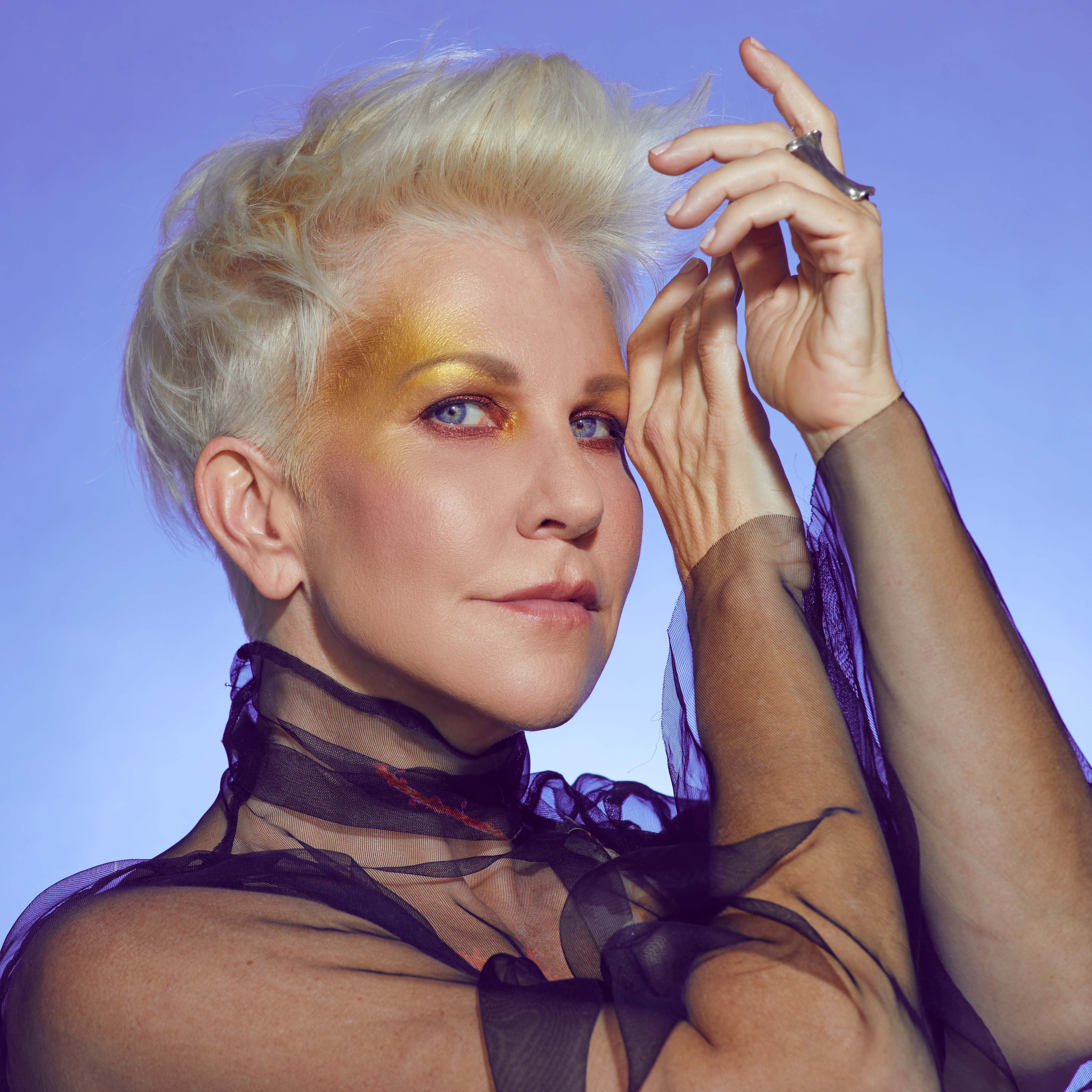





You must be logged in to post a comment.